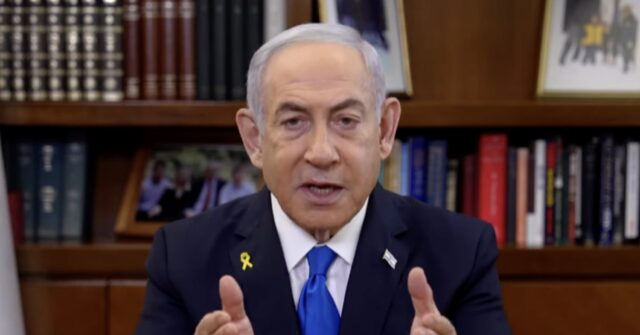Israeli Prime Minister Benjamin Netanyahu recently addressed the Lebanese people, urging them to reclaim their country from Hezbollah and Iranian influence. This speech came amid Israel’s military operations, which included capturing the strategic town of Maroun al-Ras, a known Hezbollah stronghold. Netanyahu’s appeal to the Lebanese marked his second address since the escalation of hostilities that began three weeks prior, following continuous provocations from Hezbollah. The complexity of the region, with its history of violence and political instability, underpinned his message, as he sought to communicate Israel’s perspective on the ongoing conflict and the broader implications for Lebanon.
In his address, Netanyahu painted a picture of Lebanon’s former glory, once celebrated as the “pearl of the Middle East.” Highlighting how Hezbollah and Iranian support have transformed the nation into a battleground, he lamented the current state of chaos and conflict. He emphasized that Iran, rather than Israel, has played a pivotal role in destabilizing Lebanon, using Hezbollah to further its strategic objectives. The prime minister characterized Hezbollah not only as a militia but as a terrorist organization that has increasingly endangered the lives of Lebanese citizens, regardless of their religion or background. His condemnation of the group’s actions served to rally support from the Lebanese populace against an entity he portrayed as a direct threat to their safety and prosperity.
The Israeli military’s recent operations aimed at degrading Hezbollah’s capabilities were a crucial point in Netanyahu’s speech. He claimed significant success, asserting that Israel had weakened Hezbollah more than at any point in recent history. This claim was backed by reports of high-level casualties within the group, including the acknowledgment of the death of its leader’s successor. As he framed Israel’s military actions as a necessary defense response, Netanyahu sought to instill a sense of urgency among the Lebanese people, reiterating that the continuation of their current course could lead to more suffering and prolonged conflict.
Netanyahu’s message also revolved around an appeal for unity among the diverse populations of Lebanon, urging them to recognize the destructive role of Hezbollah in their society. He implored Lebanese parents to consider the future of their children and to take action against those responsible for their current plight. By promoting the idea of a Lebanon free from Hezbollah’s grip, he envisioned a nation capable of rebuilding and fostering peace and stability. The call for a singular national identity—“One Country, One Flag, One People”—was intended to resonate across the various sects and communities within Lebanon, breaking down barriers that have historically divided them.
Moreover, Netanyahu’s speech contained a warning about the potential for Lebanon to face a fate similar to that of Gaza—a region that has long suffered from conflict and humanitarian crises. He asserted that the Lebanese people hold the power to change their circumstances by opposing Hezbollah’s influence. This message positioned the Lebanese not merely as victims of circumstance but as active agents capable of reforming their nation’s trajectory. The notion that even small individual actions could collectively lead to significant change was a central theme, aimed at empowering every citizen to contribute to Lebanon’s salvation.
Ultimately, Netanyahu’s address was not solely about Israel’s military advancements; it was also a strategic communication designed to influence the hearts and minds of the Lebanese populace. He sought to foster discontent towards Hezbollah while simultaneously offering a vision of hope for a peaceful and prosperous Lebanon. By encouraging the Lebanese people to take a stand against terrorism and foreign domination, he aimed to create a narrative where they could not only reclaim their sovereignty but also establish a more harmonious coexistence with Israel. In this context, Netanyahu’s speech underscored the intertwined fates of Israel and Lebanon, suggesting that peace in the region depended on the collective will of the Lebanese to oppose those who have perpetuated war and suffering.

